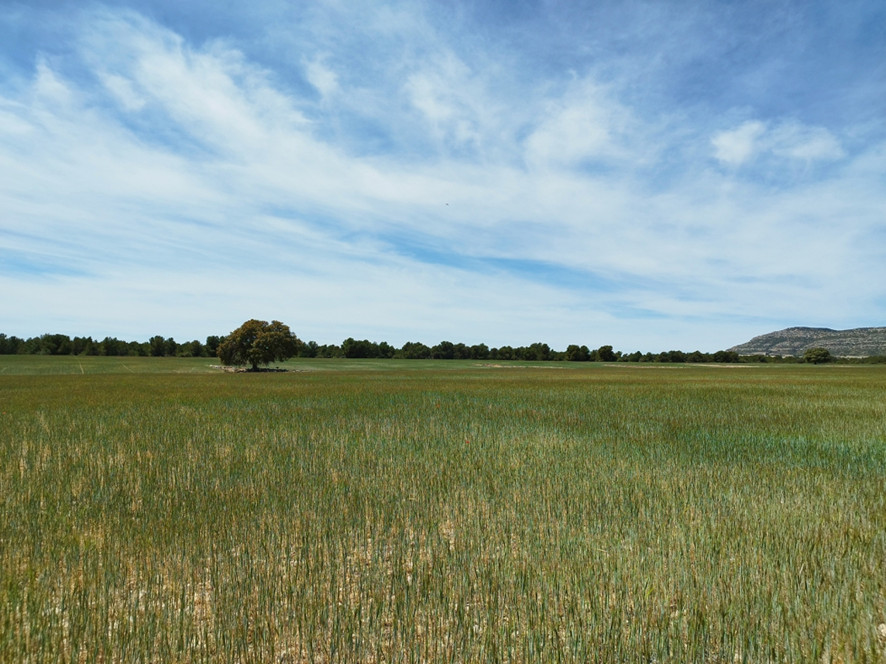Advances in Andalusian Agriculture Against Climate Change

Direct Seeding and Cover Crops: The Latest Advances in Carbon Farming
2023-03-10
Life Agromitiga: Sustainable Practices That Save Costs and Resources
2023-04-14Advances in Andalusian Agriculture Against Climate Change
The LIFE Agromitiga project, coordinated by the Spanish Association for Conservation Agriculture Suelos Vivos (AEACSV), recently held a seminar at the headquarters of the European Parliament in Brussels. The event showcased the work carried out alongside the Andalusian agricultural sector to advance the implementation of conservation agriculture and the development of good agricultural practices that help mitigate climate change and its effects.
Under the title “Carbon Farming: Challenges and Opportunities for European Farmers”, the event brought together farmers, researchers, and technicians involved in the adoption of conservation agriculture. This key technique enhances the net carbon sequestration in agricultural land, increases soil CO₂ capture, reduces emissions, improves soil structure, and mitigates erosion and desertification.
Profitability of Carbon Farming
The second roundtable, moderated by José Fernando Robles, ASAJA-Sevilla coordinator for the LIFE Agromitiga project, focused on analyzing the profitability and opportunities of carbon farming. Participants included Emilio González, professor at ETSIAM of the University of Córdoba; Francisco García, Director of Corporate Affairs at Syngenta; and farmer Pedro Maestre.
As Professor Emilio González highlighted in his presentation, the cost of inaction on soil degradation exceeds €50 billion per year in the European Union. He therefore advocated for the implementation of conservation agriculture—based on minimal soil disturbance through direct seeding, permanent soil cover, and crop rotation—which has the highest potential for mitigating climate change.
In fact, as González concluded, the mitigation potential of conservation agriculture in Spain is estimated at 53 million tons of CO₂ per year, a figure that could offset the entire emissions output of the agricultural sector in the country..
This model is at the core of the LIFE Agromitiga project (Development of Climate Change Mitigation Strategies Through Carbon-Smart Agriculture), which is financially supported by the European Union’s LIFE Program. Under the coordination of AEACSV, the project includes participation from ASAJA-Sevilla, the University of Córdoba, the Andalusian Institute for Agricultural and Fisheries Research (IFAPA), the Andalusian Regional Government, and the European Conservation Agriculture Federation (ECAF).
Conservation Agriculture as a Carbon Sink
The foundation of the LIFE Agromitiga project is conservation agriculture (CA), which aims to minimize soil disturbance, maintain permanent soil cover, and implement crop rotation. This approach plays a crucial role in enhancing the soil’s carbon sink effect while reducing greenhouse gas (GHG) emissions, particularly CO₂ and N₂O.
The project's main area of implementation is Andalusia, where it operates on 36 farms, though its findings are applicable to the entire Mediterranean Basin. Research is also being conducted on nine farms in other European countries.
Now in its final year, LIFE Agromitiga is developing tools and strategies to enhance carbon sequestration, evaluating the impact of different agricultural practices, and providing verifiable data on the mitigation capacity of various soil management systems in both herbaceous and woody crops in the Mediterranean Basin. The project aims to contribute to the transition toward a low-carbon agricultural system, delivering validated results that can be applied to the European Union’s international climate commitments.
This post is also available in: Español (Spanish)




